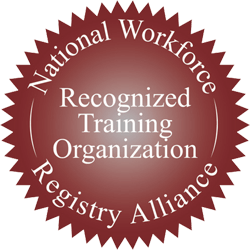|
Dr. Montessori stressed that the classroom belongs to the children. In today’s quote we gain a glimpse of why she felt this way.
Thoughts for the day:
* Why is it important that children own and control things in their environments?
* Is the classroom environment sufficient, or should the home environment also be involved?
* Is this need for control different for children than it is for adults? What kinds of ownership do you require from your home and work environments?
* If you currently work in a classroom, what are the ways that you communicate ownership?

CGMS’ next groups all begin soon. If you want to extend your professional development, or if you are interested in becoming a certified Montessori teacher, now is the time to visit our website at www.guidedstudies.com for more information.
|




